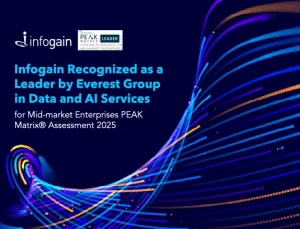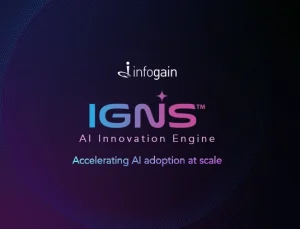- Posted on : June 14, 2024
-
- Industry : Corporate
- Tech Focus : Data & AI
- Type: Blog
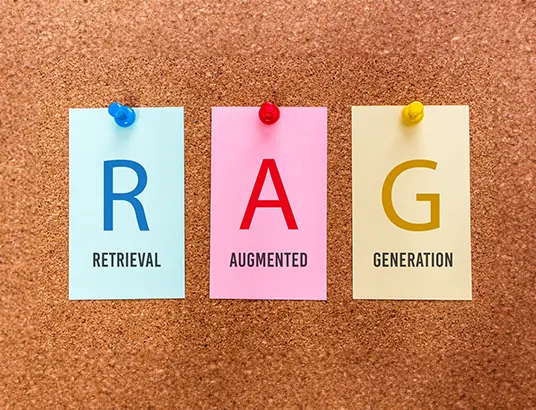
We are all familiar with Retrieval Augmented Generation (RAG) by now. RAG is a framework designed to enhance text quality by integrating relevant information retrieved from an external knowledge base into the generated content. By combining retrieval mechanisms with generative capabilities, RAG produces more accurate, contextually appropriate, and informative text, significantly improving the overall results.
Recently, Agentic RAG has emerged as a new and powerful AI technique. In this blog, we’ll examine the problems with traditional RAG, then dive into the next advancement in the field of large language models (LLM)—agentic RAG—and explore its features and benefits.
A typical RAG pipeline involves:
- Data Indexing
- User Query
- Retrieval & Generation
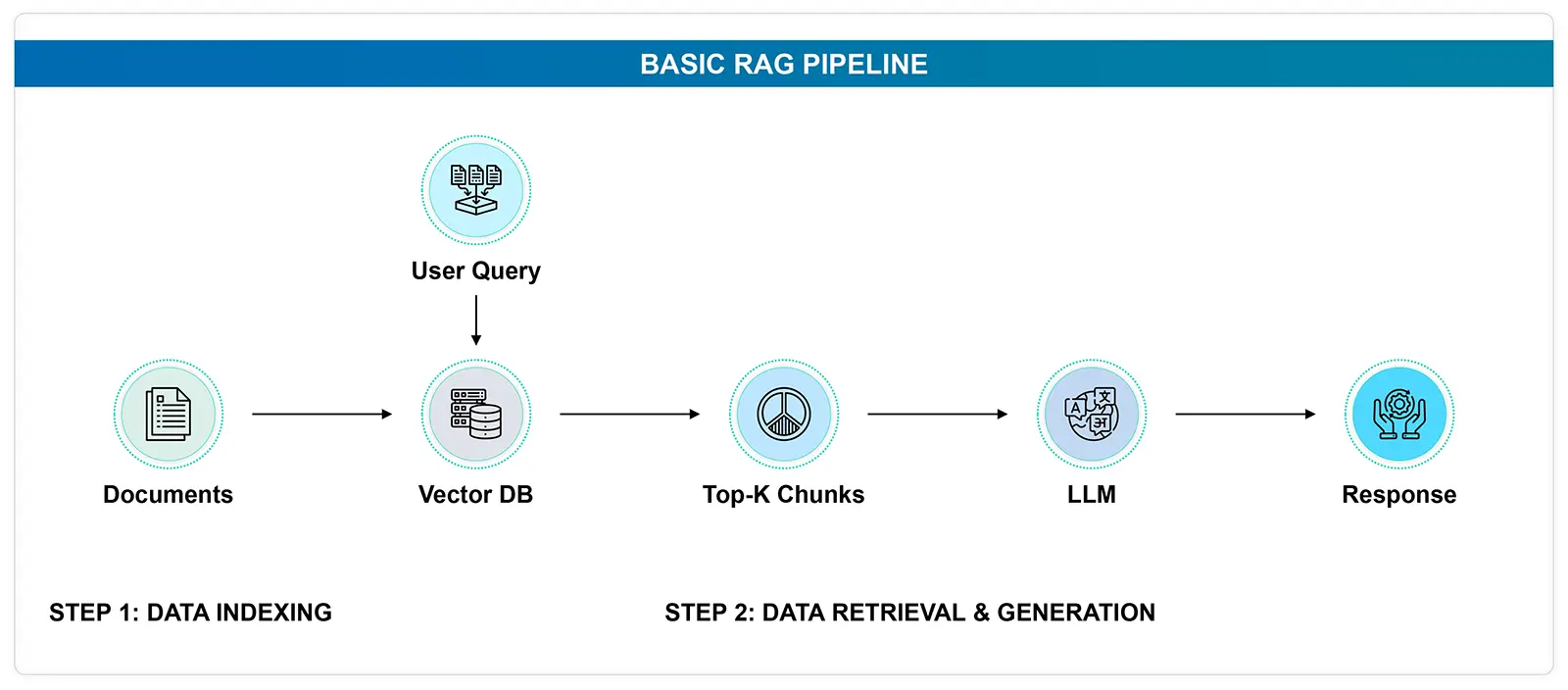
Problems with Traditional RAG:
- Summarization issues: Summarizing large documents can be tricky. The traditional RAG framework retrieves the top K chunks and may miss crucial information if the document is extensive.
- Document comparison challenges: Comparing documents effectively is still a hurdle. The RAG framework tends to pull random top K chunks from each document, often leading to an incomplete comparison.
- Structured data analysis needs: Handling structured data queries, such as determining an employee's next leave based on their region, proves to be a challenge. Accurate retrieval and analysis of specific data points aren't spot-on.
- Dealing with multi-part questions: Tackling multi-part questions remains a limitation. For instance, identifying common leave patterns across all regions in a large organization is difficult when constrained to K chunks, which limits comprehensive analysis.
Now, to overcome these limitations, Agentic RAG comes to the rescue. Agentic RAG = Agent-based RAG implementation
Beyond Traditional RAG: Adding Agentic Layers
Agentic RAG revolutionizes the way questions are answered by introducing an agent-based framework. Unlike traditional methods that rely solely on large language models (LLMs), Agentic RAG employs intelligent agents to tackle complex questions that require:
- Intricate planning
- Multi-step reasoning
- Utilization of external tools
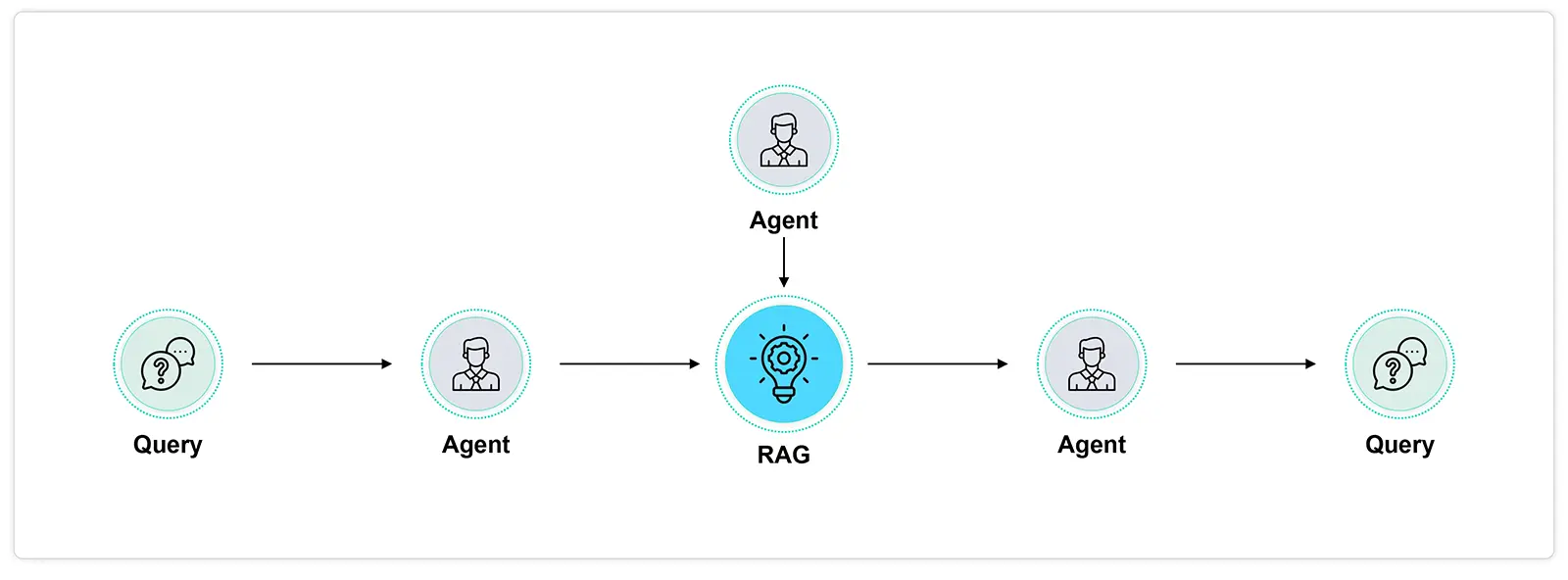
These agents act like expert researchers, adeptly navigating multiple documents, comparing information, generating summaries, and delivering comprehensive and accurate answers. It’s like having a team of specialists working collaboratively to meet your information needs. Whether you need to compare perspectives across documents or synthesize information from various sources, Agentic RAG agents are equipped to handle the task with precision and efficiency.
Why Agentic RAG?
An AI agent is essential for:
- Reasoning: Determining which actions to take and their sequence.
- Task Management: Using agents instead of LLMs directly for tasks requiring planning, multi-step reasoning, tool usage, and learning over time.
In the context of RAG:
- Agents enhance reasoning before selecting RAG pipelines.
- Improve retrieval or re-ranking processes within a pipeline.
- Optimize synthesis before responding.
This approach automates complex workflows and decision-making for non-trivial RAG use cases.
Agentic RAG Benefits:
- Orchestrated question answering: Breaks down the process into manageable steps, assigns appropriate agents, and ensures seamless coordination for optimal results.
- Goal-driven: Agents understand and pursue specific goals, allowing for more complex and meaningful interactions.
- Planning and reasoning: Agents can determine the best strategies for information retrieval, analysis, and synthesis to answer complex questions effectively.
- Tool use and adaptability: Agents leverage external tools and resources, such as search engines, databases, and specialized APIs, to enhance their information-gathering and processing capabilities.
- Context-aware: Systems consider the current situation, past interactions, and user preferences to make informed decisions and take appropriate actions.
- Learning over time: Agents are designed to learn and improve, expanding their knowledge base and enhancing their ability to tackle complex questions.
- Flexibility and customization: The framework provides exceptional flexibility, allowing customization to suit specific requirements and domains.
- Improved accuracy and efficiency: By leveraging the strengths of LLMs and agent-based systems, agentic RAG achieves superior accuracy and efficiency in question answering.
RAG Agents can be categorized based on their functions, including routing, one-shot query planning, tool use, Reason + Act (ReAct), and dynamic planning & execution. These functions vary in complexity, cost, and latency and range from simple, low-cost, low-latency tasks to complex, high-cost, high-latency operations.
For example:
- Routing Agents (aka Routers): The routing agent relies on an LLM to select the appropriate downstream RAG pipeline. This process is known as agentic reasoning, since the LLM analyzes the input query to determine the best-fit RAG pipeline. It represents the most straightforward form of this type of reasoning.
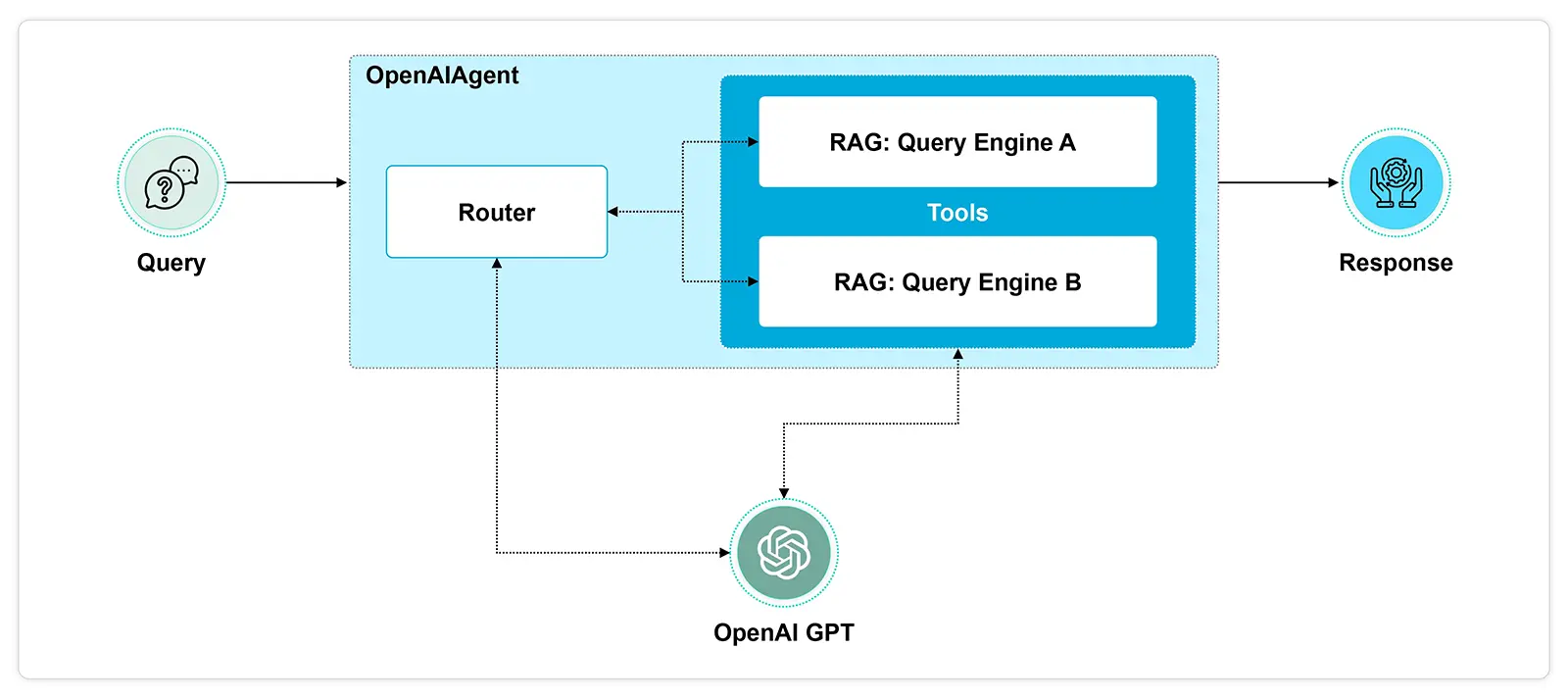
One scenario may involve choosing between summarization and question-answering RAG pipelines. The agent evaluates the input query to decide whether to route it to the summary query engine or the vector query engine.
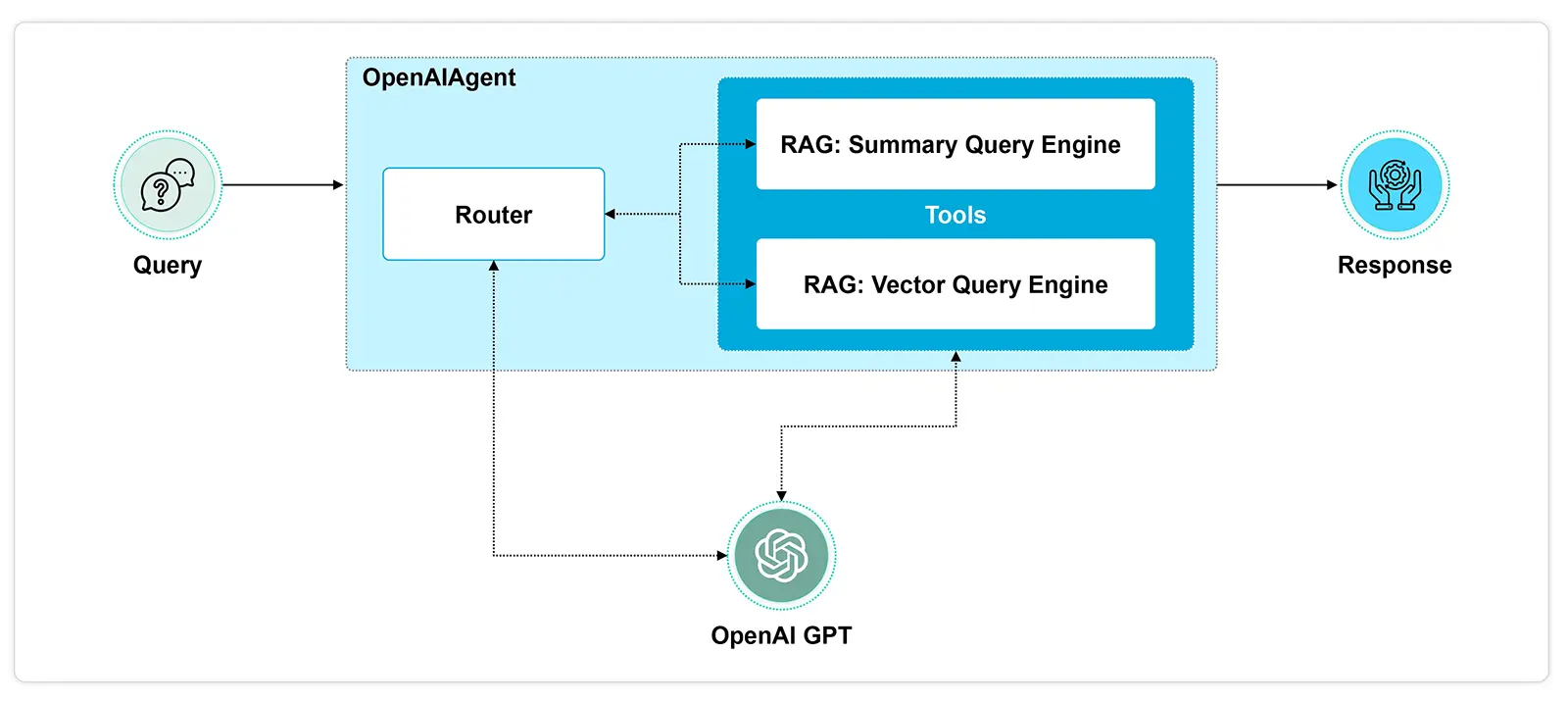
- Query Planning Agent: It simplifies a complex query by dividing it into smaller, parallelizable sub-queries. Each sub-query can be executed across various RAG pipelines that are linked to different data sources. The individual responses from these pipelines are combined to form the final response.
In essence, the process involves breaking down the query into manageable parts, executing them across suitable RAG pipelines, and finally merging the results into a coherent response.
Several other flows are there based on the functionalities and use cases.
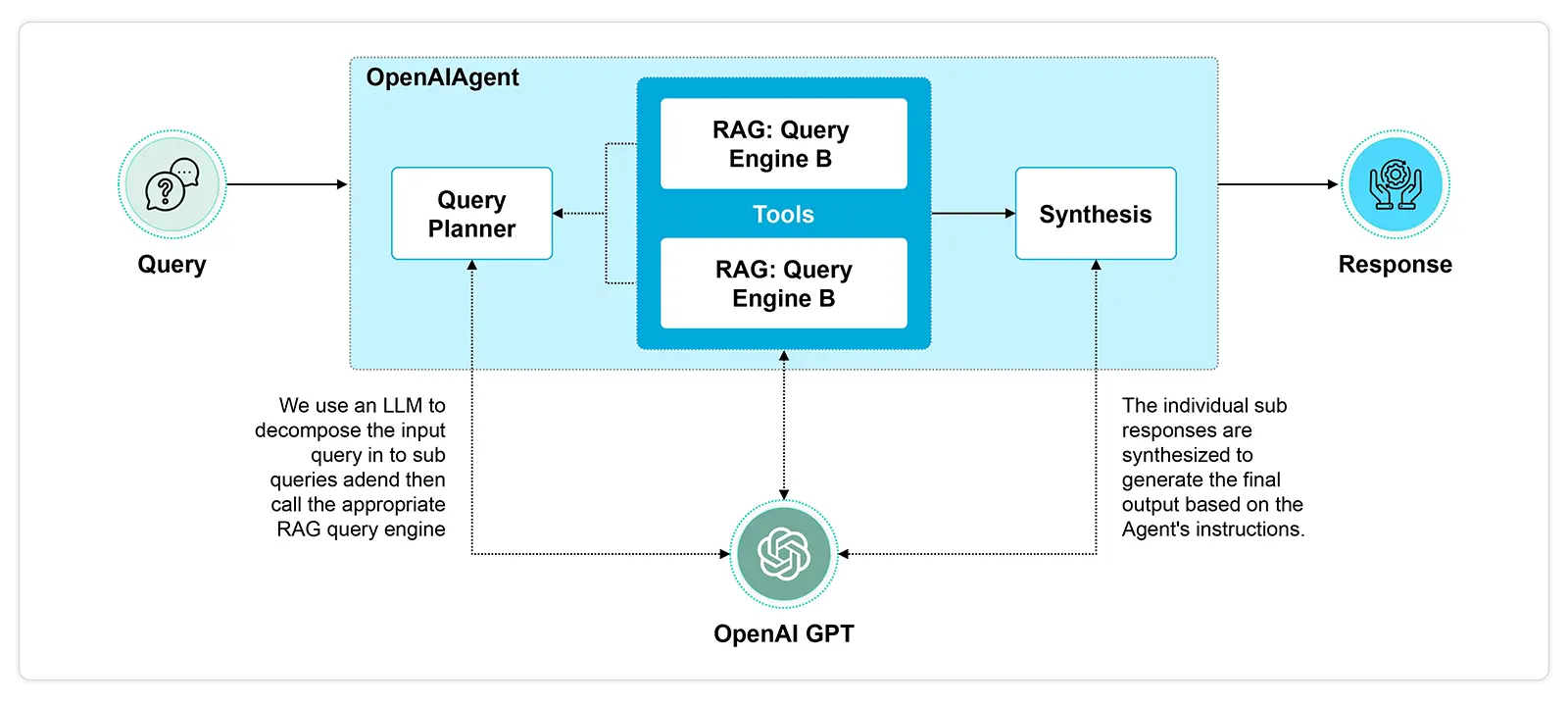
Agentic RAG represents a significant advancement in the field of large language models. By incorporating custom agents that can interact with multiple systems, automate reasoning, and dynamically select the best tools for the task at hand, Agentic RAG addresses the shortcomings of traditional RAG. This makes it a more effective solution for handling complex queries and a wider range of use cases.
For more information, visit our website and check out Infogain’s analytics, data, and AI services.


